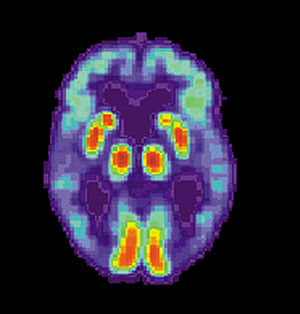
Interesting piece in the BMJ recently claiming that many people diagnosed with Alzheimers and dementia probably won’t ever develop issues beyond normal ageing memory loss. Here’s what WDDTY had to say about it:
70 per cent of Alzheimer’s patients are wrongly diagnosed
Around 65 per cent of people aged over 80 will be diagnosed with Alzheimer’s in a new drive in the UK and the US to screen the elderly. But only between five and 15 per cent of people with mild cognitive impairment, such as memory loss, will ever develop Alzheimer’s. The rest will never suffer from the disease, despite the prognosis, and they may even improve, say specialists in the UK and Australia.
A similar picture is emerging for people labelled as having dementia. Around 25 per cent will never see their mild cognitive problems develop into full dementia.
I have noticed that the recent drive for better diagnosis of these conditions has led to many more people being told they are at risk of developing Alzheimers or dementia and this brings a lot of worry that, by the looks of this article, could be totally unwarranted. That seems a shame. The cynic in me would wonder if this is, yet again, a drive to sell more drugs. I hope not.
Of course, it is vitally important to identify those who might be at risk of these horrid conditions but I have been worried about how you do distinguish between simple (if frustrating) memory loss and the more severe conditions. That must be hard.
As the WDDTY article also goes on to suggest, it could even be that the drugs given could cause more cognitive decline themselves.
You can go to the BMJ and sign up to read this article if you like – it is part of the fascinating Too Much Medicine series, which is a fab idea from BMJ and very welcome. If you don’t sign up, reading the rapid responses is enlightening anyway.
Also, here is an interesting piece about possible new ways to distinguish between those who may go on to develop more severe problems and those who likely won’t.
Breakthrough discerns normal memory loss from disease
From a natural medicine perspective, there is much you can do to allay cognitive problems. Some of the best work I have read is in Holford’s Alzheimers Prevention Plan. There are also chapters on preventing age related memory decline and arresting Alzheimer’s in his Optimum Nutrition for the Mind book, which I really rate. Holford knows his stuff in the mental health field in my opinion.
When I get a mo, I will be doing a factsheet on memory and cognitive health for you to summarise the stuff I know. I’ll give you a clue now that zinc and essential fatty acids, especially fish oils, are key, as are the phospholipids – I will explain more. If you can’t wait, have a look at this which is one of my fave cognition products.
Actually, here, too, is a piece I wrote in 2010 – where I also promised to get the factsheet done soon. Oops. Not memory loss, more lack of time, promise 😉
I also wrote about how meditation has been found in studies to help stop cognitive decline:
Moral of this story (or post anyway) is that a diagnosis of dementia or Alzheimer’s is seemingly not necessarily a sentence for continuing cognitive decline, and there is much you can do yourself to support brain function. Now, there’s a nice thought 🙂
Perhaps I have missed it, but how about a post to help individuals be alert to signs that they might be getting toxic from medications, prescription or otherwise? It happens all to often.
BTW, a good post!
Good idea, thanks. Pretty much anyone with chronic illness or symptoms could have toxicity at the heart of it. Here’s one post I wrote on detox generally to start with and I’ll see what I can do about signs and symptoms, although the list is going to be pretty huge 😉